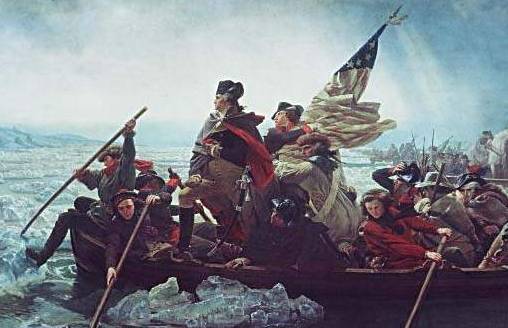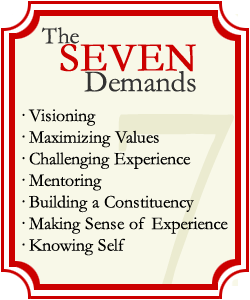Cultivate GREATNESS | Leadership Training & Life Hacks
Personal Development 2.0 Unleash the Champion Within.
Archive for the ‘Personal Integrity’ Category
If Nobody Loves You, Create the Demand - Podcast CG018 with Dr. Joel Freeman
Author: Travis Wright1 Oct

According to the Ewing Marion Kauffman Foundation (an organization that promotes entrepreneurship & education) there are approximately 10 million Americans involved in starting a new business at any given time. With that reality in mind, millions of people will take their first courageous steps on the road to self-employment—only to lose their footing when they encounter unexpected obstacles in the path.
 Leadership Podcast 018 : Joel Freeman, Author of If Nobody Loves you, Create the Demand.
Leadership Podcast 018 : Joel Freeman, Author of If Nobody Loves you, Create the Demand.
The statistics don’t lie: an estimated 75 percent of new businesses will fail. The overwhelming majority of those will close up shop within the first six months. Clearly, the mere possession of a great idea, product or service does not ensure a successful outcome. In his new book, If Nobody Loves You, Create the Demand, author, international conference speaker and business coach Dr. Joel Freeman provides the skills and tools necessary for individuals aspiring to create a new business on a limited budget.
In this podcast, Joel talks about how to effectively get publicity for your business. He also talks about Trips With Dad, which is his philosophy of keeping family close. Go anywhere in the world that your child chooses at age 15. This will increase closeness and bonding in the family, giving more of a peer feeling to the relationship.
Find out more from Joel at www.WorkHardWorkSmart.com
Joel Freeman is a truly gifted communicator with a knack for finding the memorable stories or quotes to illustrate his points. His humorous and conversational style makes this book a quick, enjoyable read. If Nobody Loves You, Create the Demand is the essential resource for people who truly desire to see their entrepreneurial dreams take flight.
Why do Some People Consistently Inspire Others to Follow Their Lead?
Author: travis22 Sep
John C. Maxwell is world renowned for his knowledge of leadership, and his book, The 21 Indispensable Qualities of a Leader (published by Thomas Nelson, 1999), is clearly the place to get started. But first, let’s start with a simple question: Why do some people consistently inspire others to follow their lead? According to John C. Maxwell, it is the “character qualities” they possess. In The 21 Indispensable Qualities of a Leader, he identifies these top traits and then defines them in ways that readers can absorb and utilize. View PDF excerpt
Each character trait is covered in a separate chapter and contains relevant quotes and anecdotes, details on its meaning, suggestions for further reflection, and exercises for improvement. In essence, John provides a mini-course in each quality. So what are the 21 indispensable qualities? They are listed below:
1. CHARACTER: Be a Piece of the Rock
2. CHARISMA: The First Impression Can Seal the Deal.
3. COMMITMENT: It Separates Doers from Dreamers.
4. COMMUNICATION: Without It You Travel Alone.
5. COMPETENCE: If You Build It, They Will Come.
6. COURAGE: One Person with Courage Is a Majority.
7. DISCERNMENT: Put an End to Unsolved Mysteries.
8. FOCUS: The Sharper It Is, the Sharper You Are.
9. GENEROSITY: Your Candle Loses Nothing When It Lights Another.
10. INITIATIVE: You Won’t Leave Home Without It.
11. LISTENING: To Connect with Their Hearts, Use Your Ears.
12. PASSION: Take This Life and Love It.
13. POSITIVE ATTITUDE: If You Believe You Can, You Can.
14. PROBLEM SOLVING: You Can’t Let Your Problems Be a Problem.
15. RELATIONSHIPS: If You Get Along, They’ll Go Along.
16. RESPONSIBILITY: If You Won’t Carry the Ball, You Can’t Lead the Team.
17. SECURITY: Competence Never Compensates for Insecurity.
18. SELF-DISCIPLINE: The First Person You Lead Is You.
19. SERVANTHOOD: To Get Ahead, Put Others First.
20. TEACHABILITY: To Keep Leading, Keep Learning.
21. VISION: You Can Seize Only What You Can.
Printed with permission of Dr. John C Maxwell
The Seven Demands of Leadership - What Separates Great Leaders from all the Rest?
Author: travis20 Sep
Who wants to follow someone who’s going nowhere? Or someone who’s unreliable or untrustworthy? Organizations wrestle with these questions and many others as they confront the elusive challenge of defining effective leadership.
The Seven Demands
Most people are certain that leadership is about direction, about giving people a sense of purpose that inspires and motivates them to commit and achieve. Leadership is also about a relationship between people — leaders and followers — that is built on firm ground; enduring values build trust. Few would disagree with these views.
Not everyone, however, offers the same answer to this question: What’s the best way to develop talented leaders to achieve sustained high performance? Indeed, Gallup Organization researchers have long been intrigued with this question. Having studied leadership talent for more than 40 years, Gallup set out to discover the demands that leaders must meet to be successful. We also wanted to uncover the developmental framework that would enhance leadership performance.
Our research confirmed the importance of two rather obvious demands — visioning and maximizing values. What was surprising was the presence of five other important demands that are essential to the development of all great leaders.
The research
First, a few words about how we arrived at these demands. Our study drew from a wide cross section of leaders who had a proven track record of success; we had evidence that they all delivered the goods. They were measurably the best when compared to others in similar roles. Their performance could be tracked to significant improvements to the bottom line. They enjoyed the endorsement of their bosses, peers, and direct reports. And they sustained high performance, often through adverse times.
For our initial leadership-development research, we identified and studied 100 leaders. They were drawn from general management, human resources, marketing, sales, manufacturing, research and development, and finance. They represented distinct levels of hierarchy, from managers to directors to vice presidents and senior executives. They had all faced significant demands that built and developed their leadership talent. Indeed, it was in researching this group that we uncovered the seven key demands that every leader must meet to achieve high performance.
We then expanded our study to include (more…)
The Art of Caring Leadership
Author: travis3 Jul
There are literally millions of words written and spoken each week on enlightened leadership yet the fact remains that low morale, high stress and job dissatisfaction continue to be three of the most serious problems facing the workplace. We seem to be so effectively socialized into top down leadership that we find it extremely difficult, if not impossib le, to change our autocratic ways. All this in spite of the many workshops and seminars on new leadership paradigms which are rooted in the empowerment of people.
le, to change our autocratic ways. All this in spite of the many workshops and seminars on new leadership paradigms which are rooted in the empowerment of people.
Change is both slow and painful but it is happening. To facilitate this process of change requires both desire and commitment plus a sound understanding of what an enlightened leader looks like. It is necessary to visualize the type of leader we are striving to become.
AN ENLIGHTENED LEADER…
* values the ideas and opinions of others.
* listens attentively.
* affirms generously
* criticizes gently and privately.
* trusts the collective wisdom of the group.
* encourages others to achieve their enormous untapped potential.
* catches people doing things right.
* involves people in decisions which effect their destiny.
* keeps people informed.
* has a sense of humour.
* trusts the decisions of others.
* realizes that his/her opinion is just one among many.
* isn’t threatened when people disagree with them.
* rejects the ” my way or the highway” paradigm.
* cares about the total well being of those with whom she/he works.
* believes that the most valuable inventory of any business is people.
* seeks out and acts upon the advice of others.
* gives credit rather than takes credit.
These are a few of the characteristics of an enlightened leader which, if present in the workplace, result in both improved morale and increased productivity.
It is in the best interest of any business to care about the well being of its employees.
Author’s Bio
Mike Moore is an international speaker/ writer/cartoonist on humour and appreciation in the workplace. He is the author and illustrator of the popular special report Humor in the Workplace.
How To Rebound Your Goals
Author: Shalman10 Apr
by CG.com Guestblogger, Alex Shalman
Most of us have heard this famous quote before. Confucius states that you can’t achieve a goal, unless you start a goal. However, a single breach in commitment starts the downward spiral of your success.

Your integrity, the promise you make to yourself, is the only thing of value that you really have. The reasoning is that money, health, and friends can all come and go, but your promises and decisions are things you’ll have to live with for the rest of your life.
The only thing that stands in between you and achieving your goal is your commitment to yourself. Having high integrity with your goals means that you’ll find a way to accomplish them, no matter what it takes.
I’ve mentioned that it only takes one breach of integrity to break a commitment. That means, having just one scoop of ice cream, missing one workout, or stealing one kiss is enough to break the contract that you’ve made to yourself, your diet, your fitness, or your relationship. How many times have we let our integrity down?
They say once a cheater, always a cheater, and this applies to anything in which you give your word and put your integrity on the line. Once you’ve taken the first step, you are likely to repeat it again, so your goal should be not to make any exceptions. Your goal should be to have a character of unshakable integrity.
(more…)
Recent Comments
- travis: Amen brother. You must make
- Derrick Kwa: This is where the formal
- Todd Rhoad: This is probably the most
- Kevin Donlin: Very good stuff. One thing
- jen_chan, writer SureFireWealth.com: Perhaps we don't give ourselves
- jen_chan, writer surefirewealth.com: Learning to accept full and
- Scott McArthur: Hey great blog! I
- Natalya: Hi all, I signed up to
- Jay, writer MemberSpeed.com: Practicing self-discipline is something a
- Albert | UrbanMonk.Net: Very nice, and you're 100%
Categories
- Achievement
- Addiction
- AdSense Secrets
- Advice
- Assertiveness
- Attitude
- Author Interviews
- Best Advice I Ever Got
- Blog Carnival
- Blog Success
- Book Reviews
- Brain Dump
- Brain Fitness
- Brainstorming
- Breathing
- Business Development
- Career & Work
- CEO Training
- Character
- Charity
- Competitive Spirit
- Concentration & Focus
- Confidence
- Consciousness
- Continuing Education
- Courage & Fear
- Creativity
- Credit Repair
- Cultivate Greatness
- Decision Making
- Earn Money Online
- Empowering
- Energy
- Entrepreneurship
- Esoteric Knowledge
- Family
- Focus
- Forgiveness
- Friendship
- General
- Goals & Goal Setting
- Gratitude
- Green Living
- GTD
- Habits
- Happiness
- Healing
- Health
- Heroes
- Highly Recommended
- Humor Relief
- Huna
- Imagination
- Initiative
- Innovation
- Inspiration
- Interpersonal Communication
- Interviews
- Intuition
- Law of Attraction
- Leadership Training
- Learning Techniques
- Life Hacks
- Link Love
- Love & Relationships
- Making Money Online
- Manifesting & Intention
- Mantras & Affirmations
- Marketing
- Mastery
- Meditation & Relaxation
- Mentoring
- Money & Finance
- Morning Ritual
- Motivation
- Napoleon Hill
- Optimism
- Organization
- Parenting
- Peace & Tranquility
- Peak Performance
- Peak Physical Fitness
- People Skills
- Personal Development
- Personal Finance
- Personal Growth
- Personal Integrity
- Physical Fitness
- Podcasts
- Positive Thinking
- Procrastination
- Productivity
- Promotional Marketing
- Prosperity Consciousness
- Psychology
- Public Speaking
- Quantum Physics
- Random Rant
- Real Estate
- Sales
- Self-Discipline
- Self-Help
- Spirituality & Enlightenment
- Strategic Thinking
- Stress Reduction
- Subconscious Mind
- Success
- Taking Risks
- Teams
- Time Management
- Turn Off Your TV
- Visualization Exercise
- Wealth & Money
- Weight Loss
- Wellness
- Yoga
Links
- 43 Folders
- Life Hacker
- Tom Peters
- Steve Pavlina
- Dr. Wayne Dyer
- Radical Hop
- Steve Olson
- Good Vibes for Good Lives
- HunaTrainer.com
- Verve Coaching
- Reality Seeds
- Pick the Brain
- Genius Types
- Talent Develop
- Life Optimizer
- Cultivate Greatness
- Personal Growth & Success
- Steve Aitchison
- WiseBread
- SalesMotivation.net
- AchieveYourCareer.com
- Get The Edge!
- Buddhanet
- Steve Olson
- The I’mPerfect Mom
- Craig Harper - Motivational Speaker
- Laura Young
- Dating Tips and Relationships Advice
- Google Wealth Wizard
- The Soul of Baseball
- Power Within
- Zen habits
- Techasaur.us
- Make It Great
- Don’t Lose Weight, GainFit.com
- Balanced Life Center
Archives
- January 2008
- December 2007
- November 2007
- October 2007
- September 2007
- August 2007
- July 2007
- June 2007
- May 2007
- April 2007
- March 2007
- February 2007
- January 2007
- December 2006
- November 2006
- October 2006
- September 2006
- August 2006
- July 2006
- June 2006
- May 2006
- April 2006
- March 2006
- February 2006
- January 2006
- December 2005
